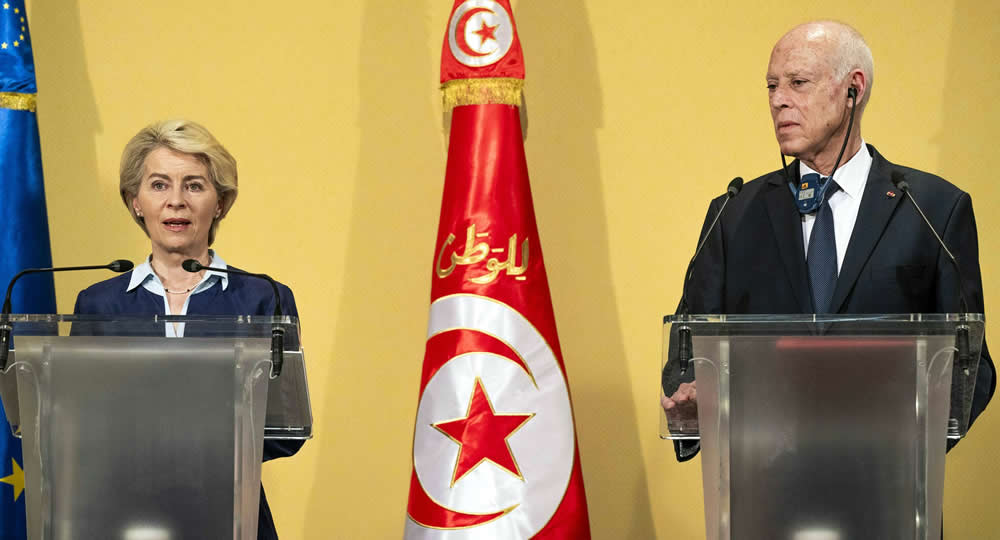The Tunisian jurist Neïla Dorra Jaibi, a specialist in European and Migration Law at the University of Tunis, warned of the serious implications of the migration agreements between the European Union (EU) and Tunisia. In a conference at Casa Árabe (Madrid), the expert denounced the fact that the EU prioritises the effectiveness of migration control over the protection of human rights.
Jaibi explained that the externalisation of migration control is not a new phenomenon. The EU had already implemented similar strategies with countries such as Turkey, which it considered 'safe' despite its human rights violations. Now, Tunisia has been designated as a 'safe country' without a legal framework that guarantees the protection of refugees and migrants.
She warned against the European Commission's recent Returns Directive, which facilitates the creation of deportation centres outside the EU, such as those proposed by the Italian government in Albania. This approach, according to Jaibi, is a "pure and simple externalisation of migration policies", which leaves the management of migrants in precarious conditions in the hands of third countries.
Tunisia, despite having ratified the Geneva Convention, lacks national legislation to ensure its implementation. The lack of legal protection exposes migrants to discrimination, violence and persecution by the authorities. In 2023, a wave of racist attacks against sub-Saharan migrants was reported, as well as reports of forced expulsions to the desert on the Algerian and Libyan borders.
She concluded that Tunisia is not ready to be a host or destination country, not only because of a lack of financial resources, but also because of social resistance to diversity. Finally, she called for a reformulation of cooperation between the EU and Tunisia, stating that "the current situation calls for a change of approach that prioritises the dignity and rights of migrants".

Source: eldiario.es 28/03/2025
